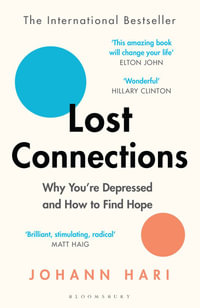This book explores what social psychology can contribute to our understanding of real-life problems and how it can inform rational interventions in any area of social life. By reviewing some of the most recent achievements in applying social psychology to pressing contemporary problems, Forgas, Crano, and Fiedler convey a fundamentally optimistic message about social psychology's achievements and prospects.
The book is organized into four sections. Part I focuses on the basic issues and methods of applying social psychology to real-life problems, discussing evolutionary influences on human sociability, the role of psychological 'mindsets' in interpreting reality, and the use of attitude change techniques to promote adaptive behaviors. Part II explores the applications of social psychology to improve individual health and well-being, including managing aggression, eating disorders, and improving therapeutic interactions. Part III turns to the application of social psychology to improve interpersonal relations and communication, including attachment processes in social relationships, the role of parent-child interaction in preventing adolescent suicide, and analyzing social relations in legal settings and online social networks. Finally, Part IV addresses the question of how social psychology may improve our understanding of public affairs and political behavior.
The book will be of interest to students and academics in social psychology, and professionals working in applied settings.
Industry Reviews
'This book is a great combination of diverse scholars seeking to bridge the laboratory and the world of real social life. It tackles a wide range of personal and social problems, bringing psychology's methods and data to bear-sometimes with surprising results. If you care about the world today and what social psychology can do to help, this is the book for you.' Roy F. Baumeister, Professor of Psychology, University of Queensland
'Social psychology's insights into major challenges confronting individuals and society are on impressive display in this volume. Whether it be children's aggression, tobacco addiction, eating disorders or depression, contributors to this valuable effort offer new and exciting understandings of problems that affect us all. This book is highly recommended for students, researchers, and professionals working in applied field, as well as everyone else who is interested in what social psychology can contribute to improving the human condition.' Arie W. Kruglanski, Distinguished University Professor, University of Maryland
























